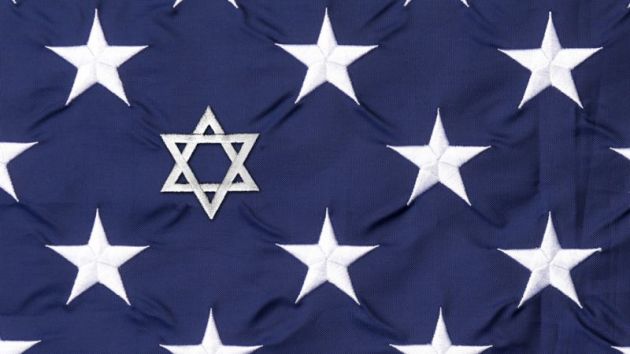What it means to be a Jewish American: Survey finds Jews worry about anti-Semitism

Jewish Americans tend to be white and although many participate, at least occasionally, in some traditional religious practices, they are less religious than the rest of the country, a Pew Research Center survey has found.
The survey released on May 21 looks at what it means to be Jewish in the United States and most of them care about Israel, though one in 10 supports the movement to boycott it.
These include going to a synagogue or fasting on Yom Kippur (the Day of Atonement)– and in some Jewish cultural activities, like making potato latkes, watching Israeli movies or reading Jewish news online.
The survey looked at Jewish identity in the United States, 2020, asking What does it mean to be Jewish in America?
On May 11, in earlier research of U.S Jews, Pew Research said that there are 7.5 million Jews of all ages in the United States, or 2.4 percent of the total population in the country.
Pew said a further 1.4 million adults (0.6 percent) have a Jewish affinity. Though they lack a Jewish parent or upbringing and do not identify as Jewish by religion, these adults consider themselves Jewish in some other way.
The survey found that U.S. Jews are culturally engaged, increasingly diverse, politically polarized and worried about anti-Semitism.
Among young Jewish adults, however, two sharply divergent expressions of Jewishness appear to be gaining ground says Pew.
One involves religion deeply enmeshed in every aspect of life, and the other involving little or no religion at all.
Overall, about a quarter of U.S. Jewish adults (27 percent) do not identify with the Jewish religion.
They consider themselves to be Jewish ethnically, culturally or by family background and have a Jewish parent or were raised Jewish.
JEWS WHO DON'T FOLOW A RELIGION
However they answer a question about their current religion by describing themselves as atheist, agnostic or "nothing in particular" rather than as Jewish.
Among Jewish adults under 30, four-in-ten describe themselves this way.
At the same time, younger Jewish adults are much more likely than older Jews to identify as Orthodox. Among Jews ages 18 to 29, 17 percent self-identify as Orthodox, compared with just 3 percent of Jews 65 and older.
And fully one-in-ten U.S. Jewish adults under the age of 30 are Haredim, or ultra-Orthodox (11percent), compared with 1percent of Jews 65 and older.
The two branches of Judaism that long predominated in the U.S. have less of a hold on young Jews than on their elders.
Roughly four-in-ten Jewish adults under 30 identify with either Reform (29 percent) or Conservative Judaism (8percent), compared with seven-in-ten Jews ages 65 and older.
Compared with older Jews, youngest Jewish adults include larger shares of both Orthodox and people with no denominational identity.
In other words, the youngest U.S. Jews count among their ranks both a relatively large share of traditionally observant, Orthodox Jews.
There is an even larger group of people who see themselves as Jewish for cultural, ethnic or family reasons but do not identify with Judaism – as a religion – at all.
Many people in both groups participate, at least sometimes, in the same cultural activities, such as cooking traditional Jewish foods, visiting Jewish historical sites and listening to Jewish or Israeli music.
Yet the survey finds that most people in the latter group (Jews of no religion) feel they have not much or nothing at all in common with the former group (Orthodox Jews).